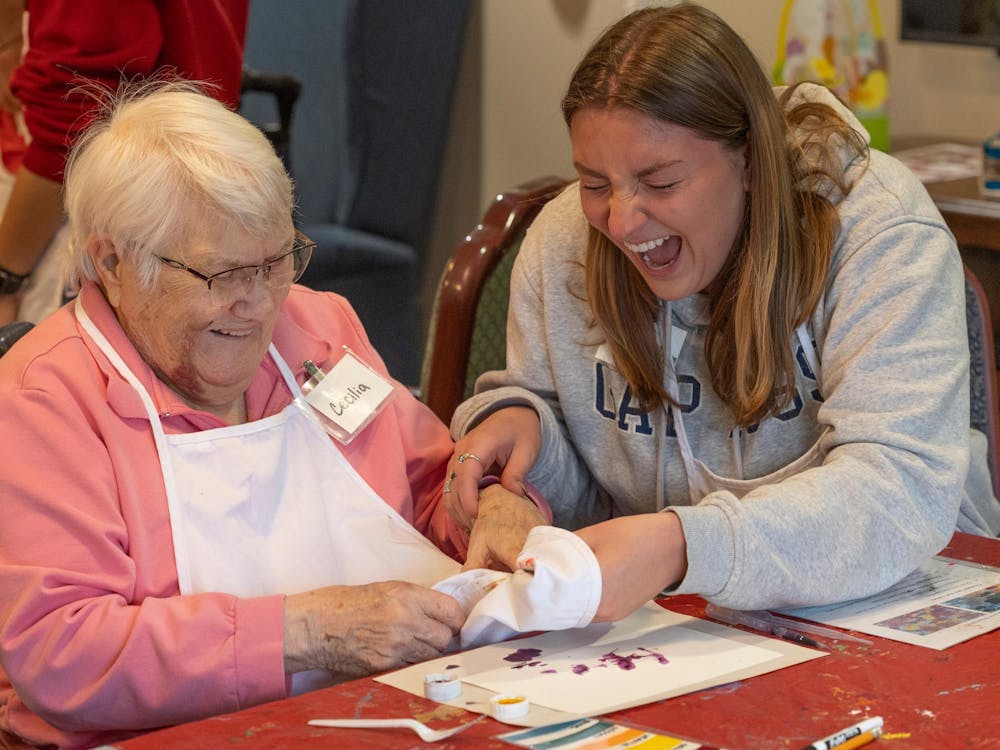More and more students have been getting busted for throwing parties and breaking COVID-19 safety protocols, such as the city’s mass gatherings ban or Miami University’s health and safety regulations.
While some of these students are caught by the police, others are turned in.
But who turns in these students? In some cases, the answer may be simple: other students.
Turning in other students to the Oxford Police Department (OPD) or the university, or “snitching,” is becoming more common around Oxford, with the desire to limit the spread of COVID-19 being a driving factor in many of these situations.
Reporting peers to the police isn’t easy for many students, though. Most find themselves facing a dilemma. Do they ignore the dangerous possible spread of the coronavirus? Or do they turn in rule-breakers and risk being labeled a snitch?
While sophomore nursing major Jordan Darling is a firm believer in following all coronavirus guidelines, she isn’t sure if she’d jump at the opportunity to bust other students for partying.
“That makes me a little uncomfortable,” Darling said. “Just because I feel that could cause some issues if anyone figures out who tattled on them about breaking the 10-person ordinance. But overall, I do see the importance of it because we have to hold not only ourselves, but others responsible.”
Both Darling and her roommate are immunocompromised and have taken extra precautions to ensure they limit their exposure to the virus. They’ve stocked up on snacks and made their room as cozy as possible because they know that they’ll be spending most of their time there. They’ve also made friends aware of their feelings on taking precautions against the coronavirus by encouraging them to wear masks when visiting.
While Darling and her roommate are going the extra mile to try to avoid contracting the virus, other students aren’t, which she said can be frustrating.
“It definitely makes me a little upset and angry and everything, just because they’re not just affecting themselves,” Darling said. “They’re going out with the mindset, ‘Oh, I’m young, I’ll get better.’ But the thing is, they don’t know about the health problems of anyone around them.”
Sophomore general engineering major Jonathan Arthur agrees with many of Darling’s thoughts but is more confident he would decide to turn someone in.
“Personally, I would do it,” Arthur said. “For one, not everybody can stay at home while doing school, because of distractions or for other reasons. So, the only time they get to actually do well in school is while being at school.”
Enjoy what you're reading?
Signup for our newsletter
Arthur said doing well in school is his main reason for wanting to return to campus. Because he has a reason for needing to be on-campus for class, he gets frustrated when other students do things, like throwing parties, that could end up getting campus shut down.
“For people that have to be on campus, I think it’s unfair [that there are] those that party and don’t want to follow guidelines, rules and regulations that are meant to keep everybody safe, just because they want to have fun for one night,” Arthur said.
He said, while he would turn in other students for partying, he doesn’t see it as snitching, but more as helping his fellow students avoid the worst-case scenario.
“I don’t think it’s fair to everybody that stupid people are partying, and everybody has to suffer the consequences when shit hits the fan,” he said.
While many students, like Darling and Arthur, are considering what they would do if faced with the possibility of turning other students in, Gabrielle, a sophomore who agreed to be identified by first name only, has already dealt with it.
She and her roommate have reported parties in their apartment complex to OPD multiple times. One night, after hearing loud noises coming from one apartment, she and her roommate went outside to confront the students in that apartment.
“We walked out, and we noticed that there were definitely more than 1o people within the apartment, one of which we knew ... had been exposed to someone who had tested positive for COVID,” she said.
She also said that out of the 12 apartments in her block, five seemed to hold parties of more than 10 people that night. They called OPD twice, at midnight and 3 a.m., but nothing was done about the parties either time.
“We both were like, ‘Yeah, we’re calling, we really don’t care,’” she said. “We don’t want to be the reason for people not coming back. We don’t want to get in trouble in our own apartment and not have any place to live ...We’re doing this because it’s not just for our own safety, but for the safety of others.”
Gabrielle isn’t the only one who has made the decision to report fellow students to OPD for breaking the rules.
OPD Lieutenant Lara Fening confirmed the department has received calls from students wishing to report other students.
“I think you’re gonna have that kind of person that is a rule follower,” Fening said. “And [they’re] going to be like, ‘Listen, I’m following the rules, why aren’t you following the rules?”
Fening also explained students’ motives for reporting parties may not always be just to “snitch.” They may have been personally affected by the virus or may have informed their parents of the situation, who then urged them to call, or even made the call themselves.
“I think that you’re going to get all stages and people across the spectrum that are going to be calling that in,” Fening said.
Reports of COVID-19 violations can be made anonymously through the city’s online reporting form for off-campus incidents, and through Miami University’s reporting form for on-campus incidents.




